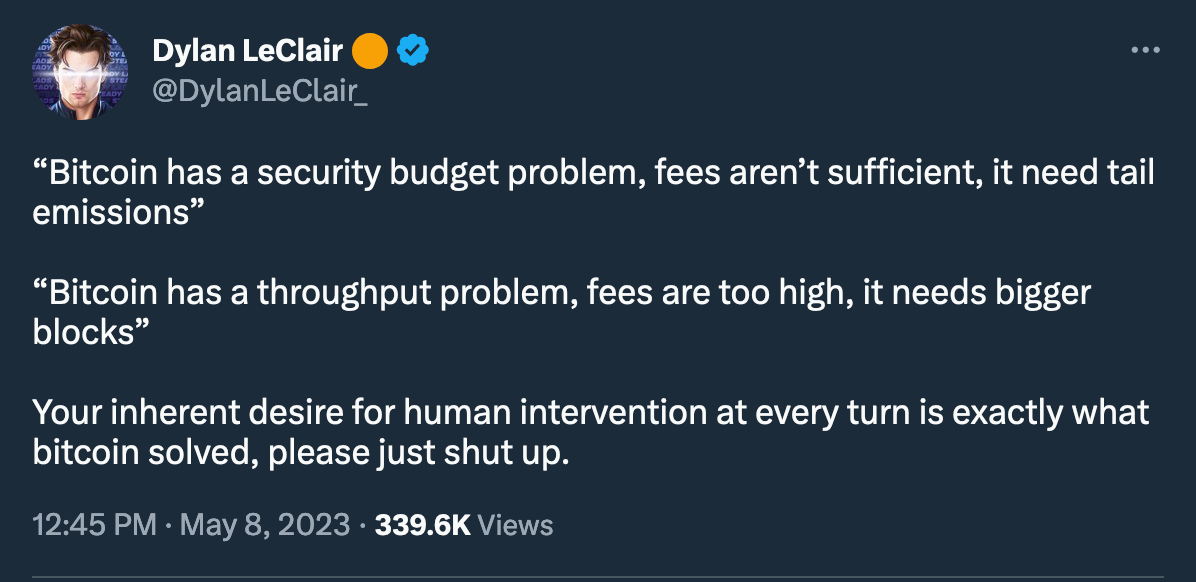Bitcoin has become extremely congested with transactions these days. And if you hadn't noticed it before, you couldn't have missed how Binance suspended BTC withdrawals twice this weekend, explaining it by network congestion and skyrocketing transaction fees.
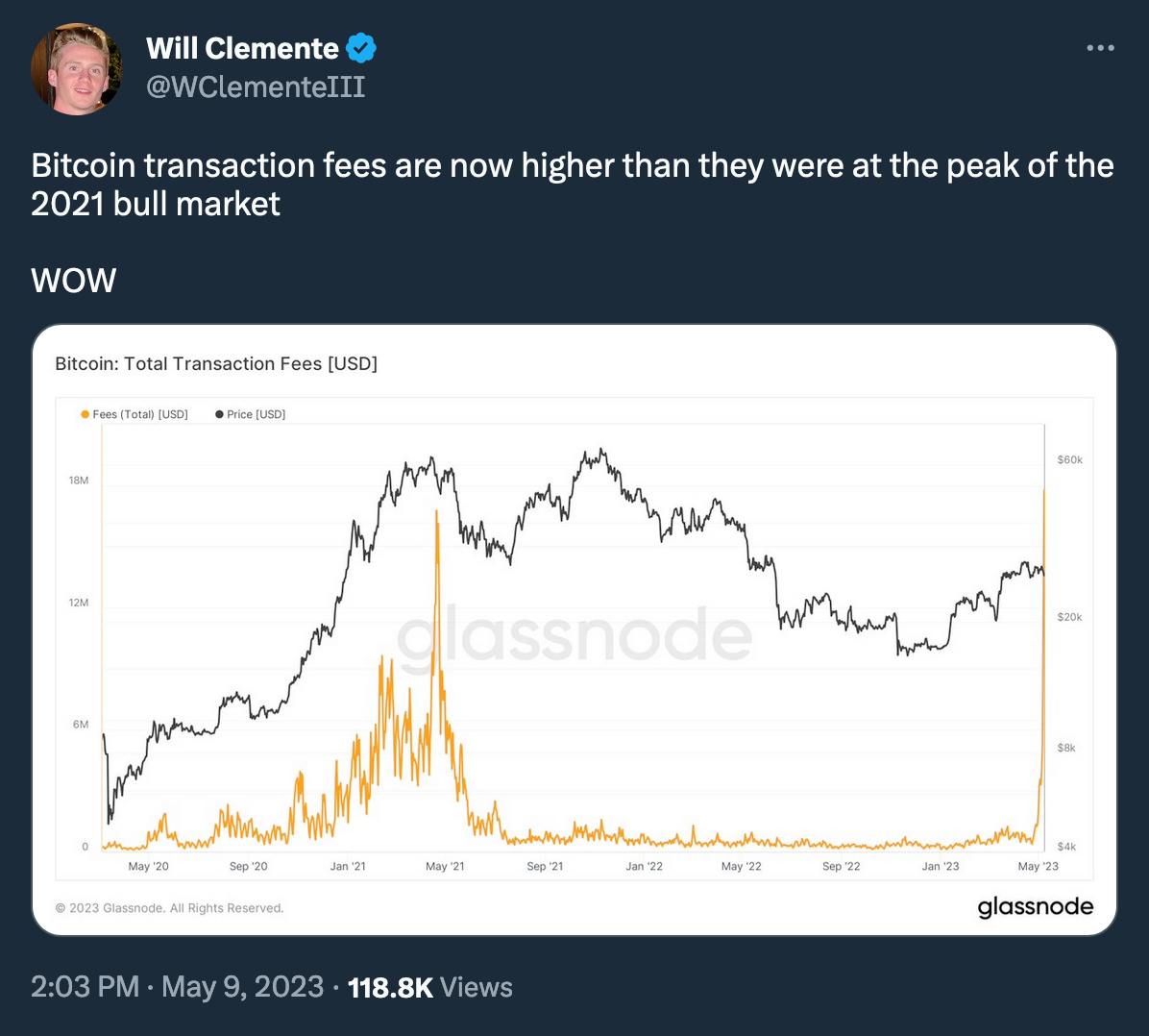
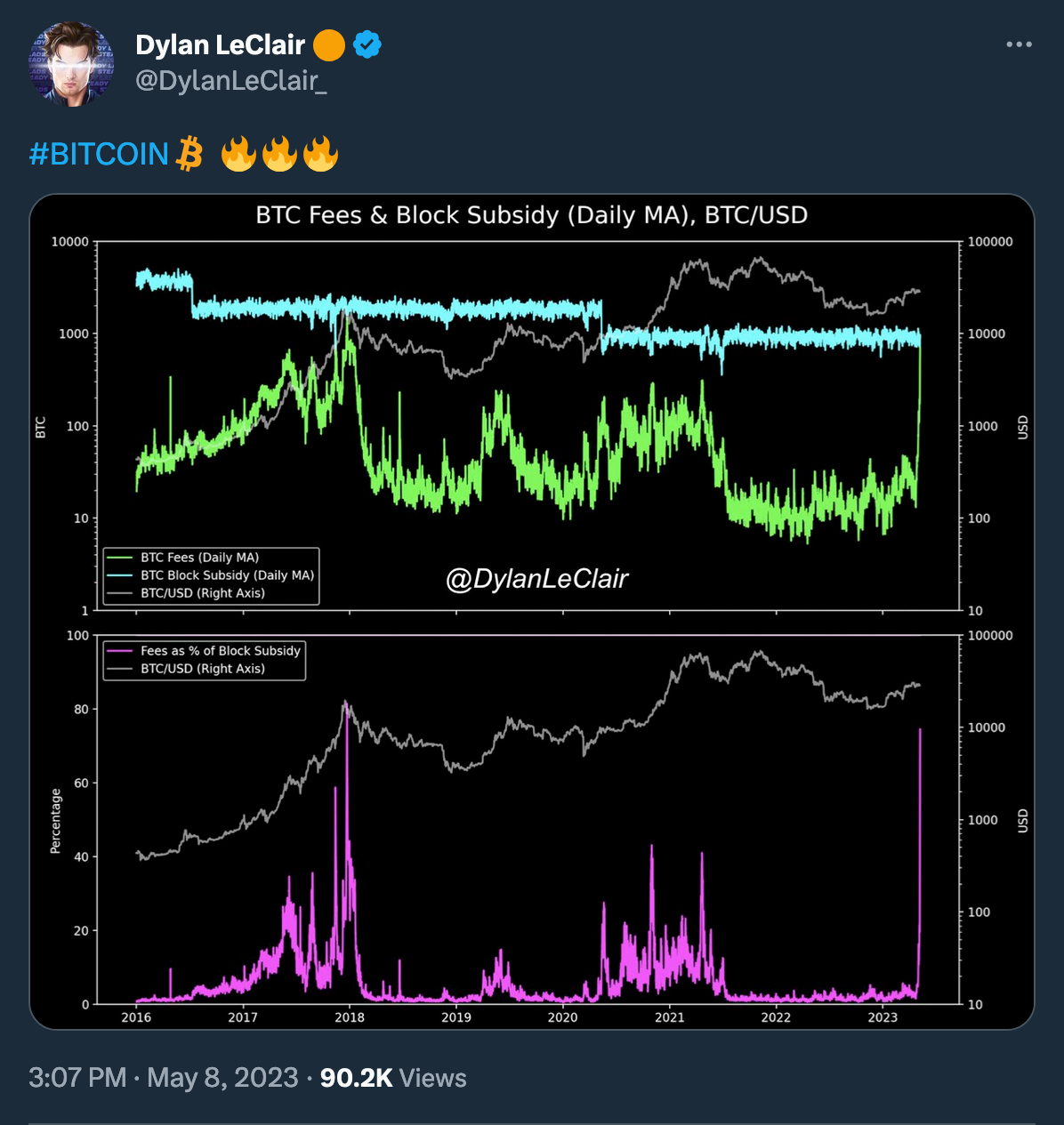
But what's going on there?
Well, basically, it's all about the Taproot adoption, which was the most recent major upgrade to Bitcoin that was activated in September 2021 (here's a great primer on it). Because this is what made possible the Ordinals protocol appearance in January 2023, based on which, in turn, pseudonymous enthusiast @domodata made his experimental and inherently flawed token "standard," BRC-20.
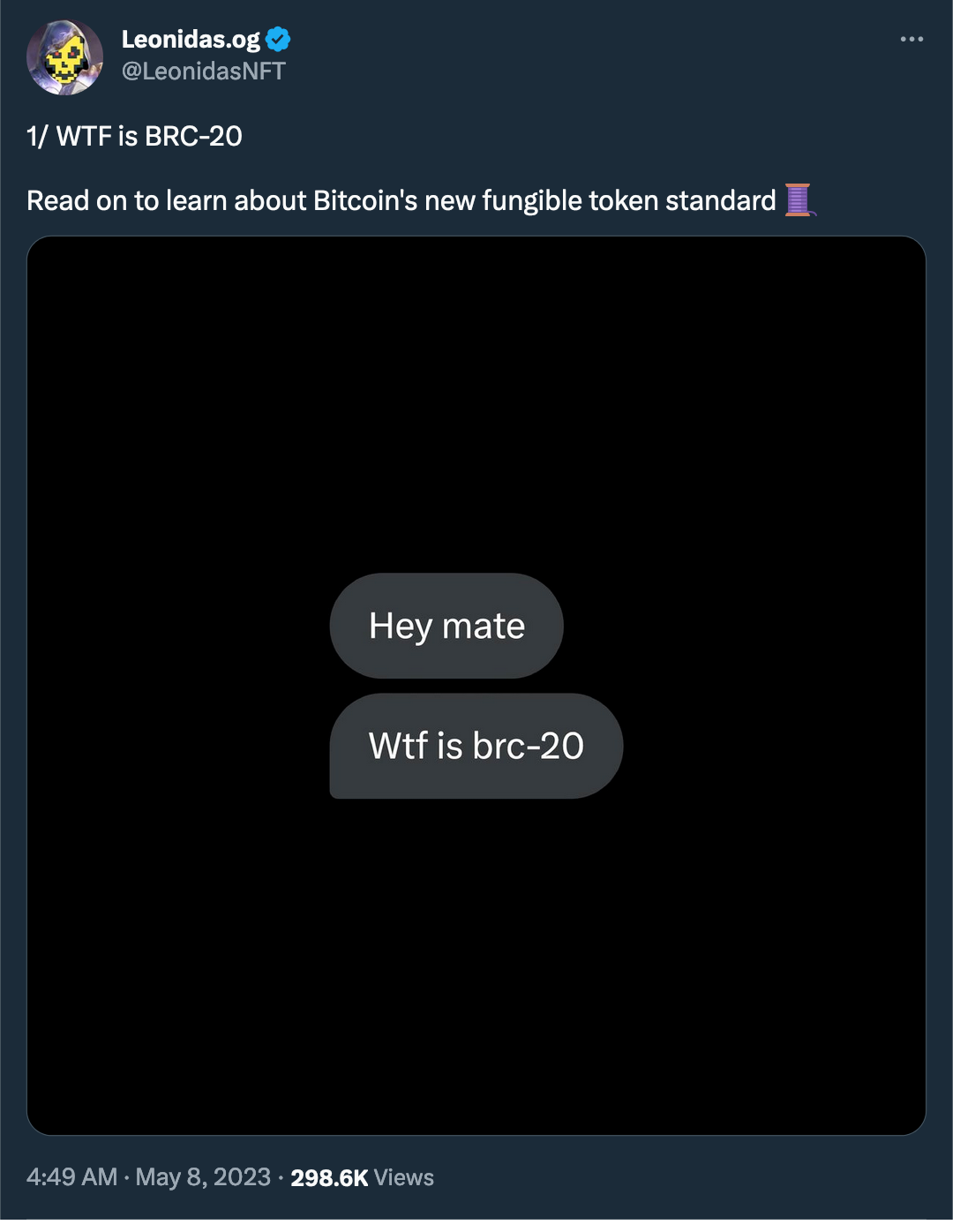
Ordinals unlocked the gateway to hell two new primitives on Bitcoin: sort of NFTs (via Inscriptions) and fungible tokens (via BRC-20) – both written directly in the Bitcoin blockchain.
The idea behind the BRC-20 is really simple: all the data for contract deployment, token issuance and transfer is written to a JSON file and placed into the Bitcoin blockchain via Ordinals inscriptions (whose safety is also of concern, by the way). So "the best thing" about BRC-20 is that every coin starts as a free mint.
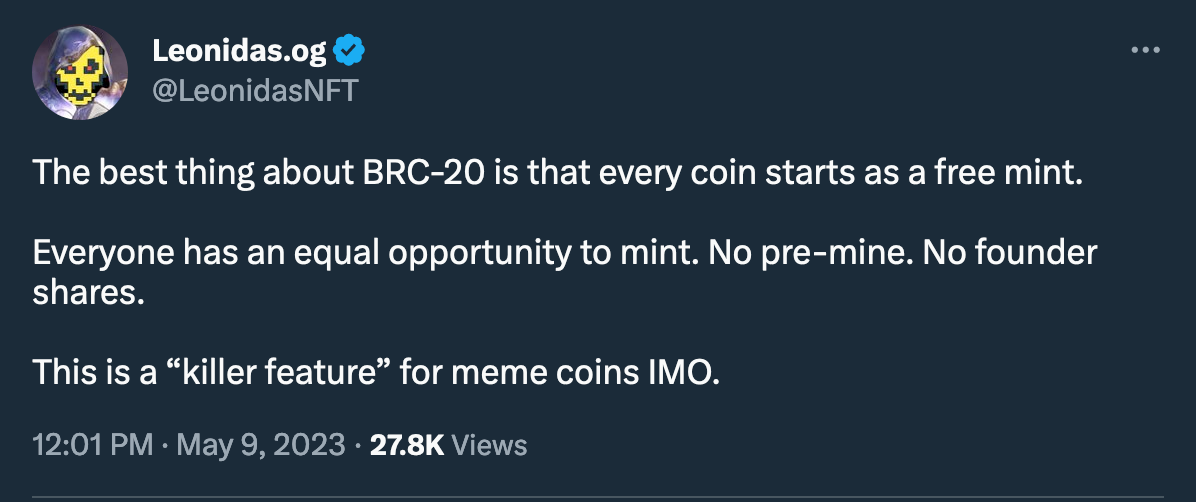
The idea of fast and easy minting their own memecoin using an experimental and inherently suboptimal (according to the author himself) "standard" has fascinated people so much that in a matter of weeks, the aggregate BRC-20 tokens market cap neared $1 billion (thread), and exchanges began adding these tokens to their listings.
You can publish your shitcoin on the Bitcoin blockchain, too – some find it "pretty cool."
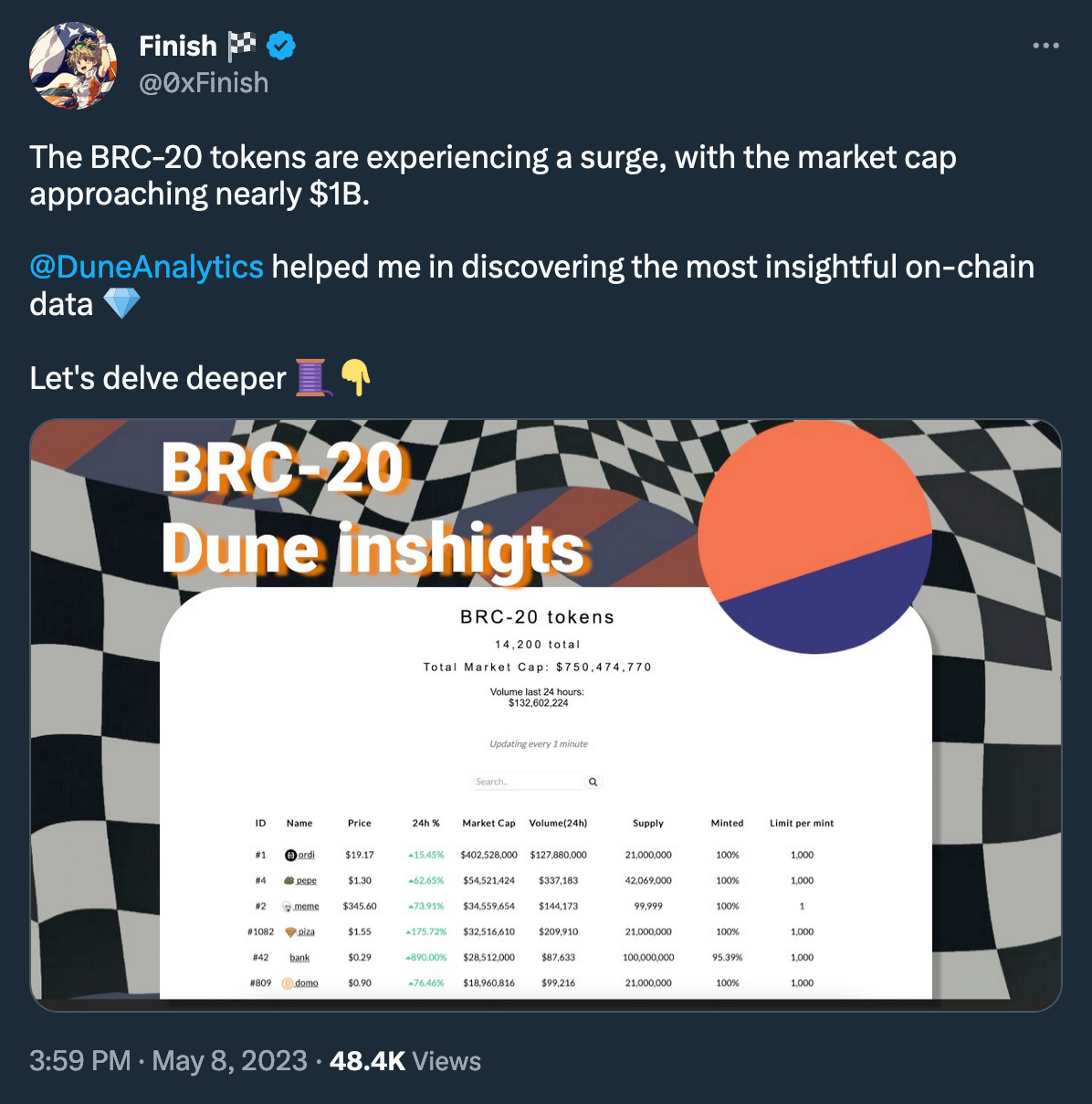
Now Bitcoin is experiencing extremely high demand for blockspace, driven by BRC-20 tokens, utilizing text-based inscriptions and ordinals. And this is a big revenue boost for Bitcoin miners, of course:
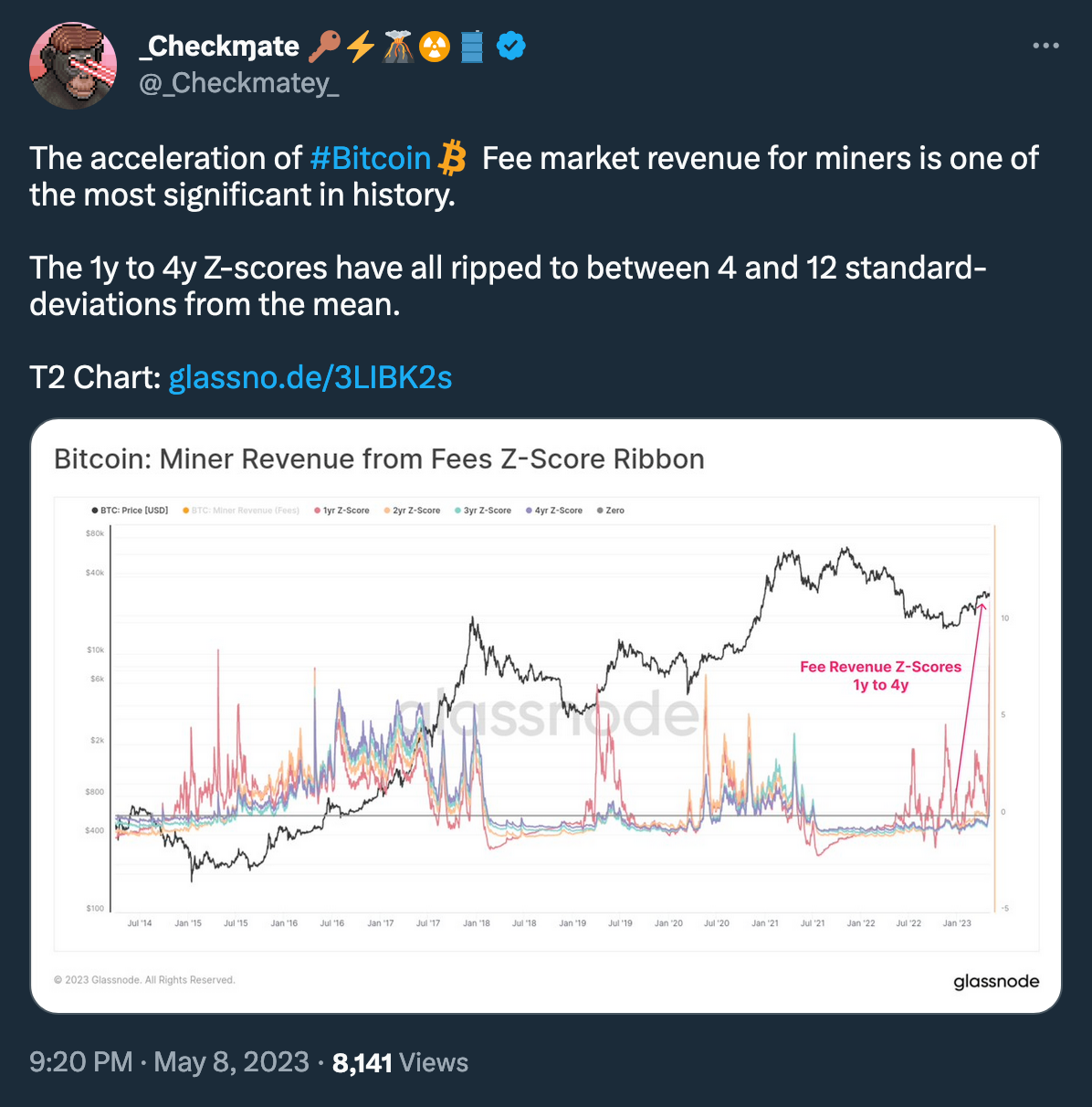
Bitcoin obviously cannot handle the current demand. That means we need L2s. And this has already increased the Lightning Network usage, which continues to grow.
Time. It's only this year that we're seeing the largest exchanges support Lightning for example. Money (including bitcoin) is like water, it looks for the path of least resistance.
— Tuur Demeester (@TuurDemeester) May 8, 2023
Even Binance announced LN support after recent troubles with BTC withdrawals treatment.
With all that hype around shitty memecoins and network congestion, the Bitcoin community appears to be really concerned: isn't it a DoS attack on Bitcoin?
Classic clash of Bitcoin Maximalism and Bitcoin Puritanism
— Jameson Lopp (@lopp) May 8, 2023
The team behind Ordswap, the first BRC20 trading platform, has developed RelayX, the first decentralized trading platform on the BSV network. Behind the wallet Ordinals Wallet is Twetch, a social application built on BSV. The founder of the Mempool mining pool is also a core…
— Wu Blockchain (@WuBlockchain) May 9, 2023
Some devs even call for urgent action, but of course, it's hard to expect that from Bitcoin:
Faced with Ordinals and BRC20 causing Bitcoin network congestion, Core developer Ali Sherief suggested introducing a runtime option to immediately delete all non-standard Taproot transactions. There are currently 5 developers participating in the discussion, but most do not agree…
— Wu Blockchain (@WuBlockchain) May 9, 2023
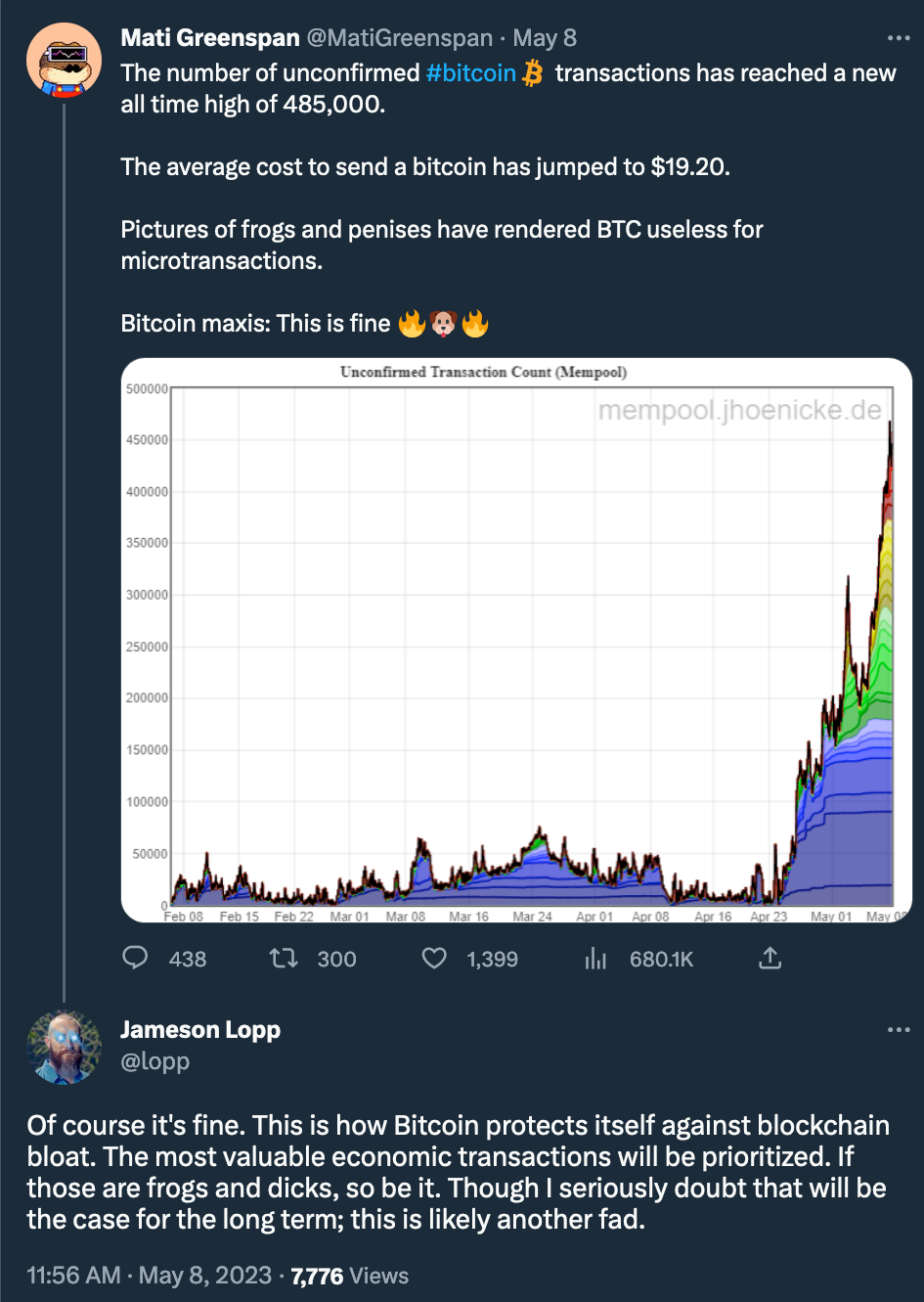
These frogs and dicks are "amazing" even (according to Ari Paul):
4/ to disagree with this, is to disagree with logic of bitcoin's structure. If valid fee paying txs are an "attack" that suggests that we need censorship or central planning. Bitcoin was explicitly built as the alternative, the purely free (fee) market system.
— Ari Paul ⛓️ (@AriDavidPaul) May 9, 2023
And "there's no such thing as high fees on Bitcoin," as Nic Carter explains. Because if you're upset about high fees on Bitcoin, then you never understood how Bitcoin was going to scale – it's an auction by design.
Intent is subjective. Bitcoin doesn't care.
— Jameson Lopp (@lopp) May 9, 2023
On one hand, you could call it "denial of service."
HOWEVER, Bitcoin does not guarantee service for a flat toll - it's an auction by design.
Therefore, "if any valid fee-paying transaction can actually damage the Bitcoin network, then there's a bug/problem since the whole point is that every fee-paying tx contributes to security and value is purely based on fee," – Ari Paul.
Sure, but the premise of bitcoin is that it’s immune to such attacks. That was Adam Back’s purpose for PoW, and why it was incorporated into bitcoin by Satoshi. If bitcoin can’t provide core service because people donate a few million in fees to miners, what is bitcoin?
— Ari Paul ⛓️ (@AriDavidPaul) May 9, 2023
Right and I’d say if this is an “attack” then we’re claiming bitcoin wasn’t successfully built to be either…can’t have censorship resistance and also avoid “attacks” like this. At least that was Satoshi’s conclusion and I agree.
— Ari Paul ⛓️ (@AriDavidPaul) May 9, 2023
Ordinals are incredibly stupid, and there's acres of space on other chains, so why are they on Bitcoin?
— Jimmy Song (송재준) (@jimmysong) May 9, 2023
Because it will last.
Because plebs can actually run a node.
Because the Bitcoin they're spending is actually scarce.
Because it won't suddenly change.
